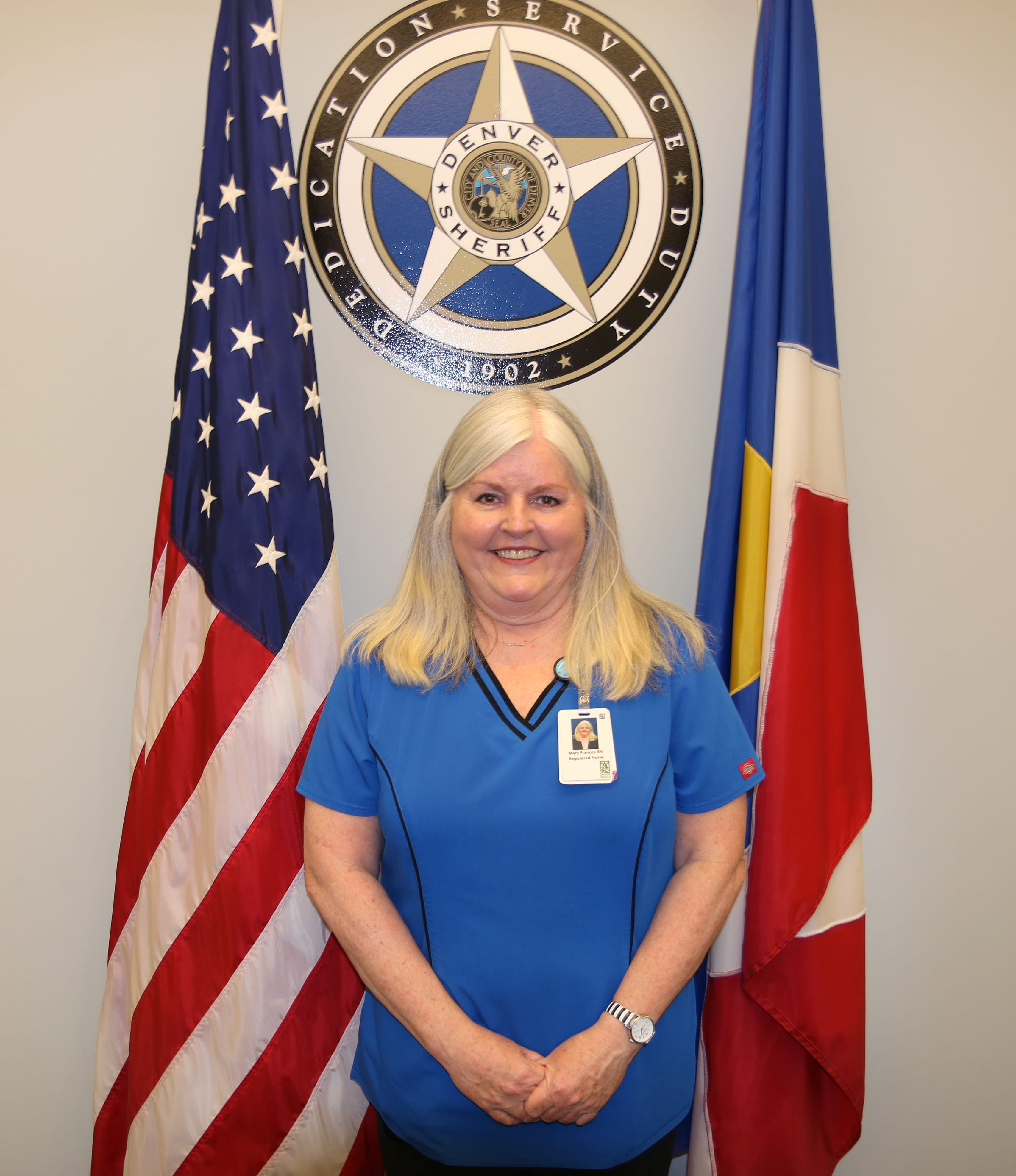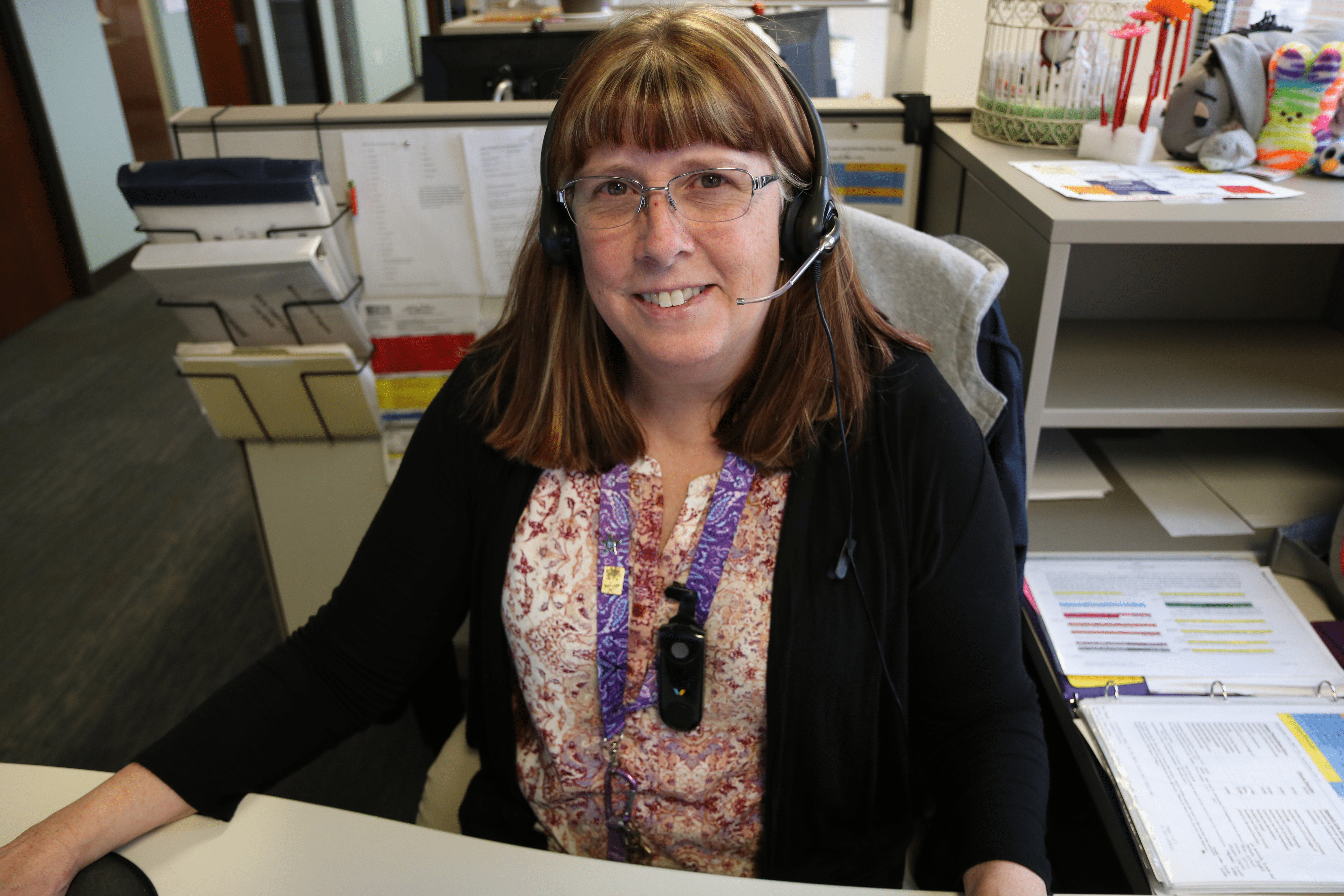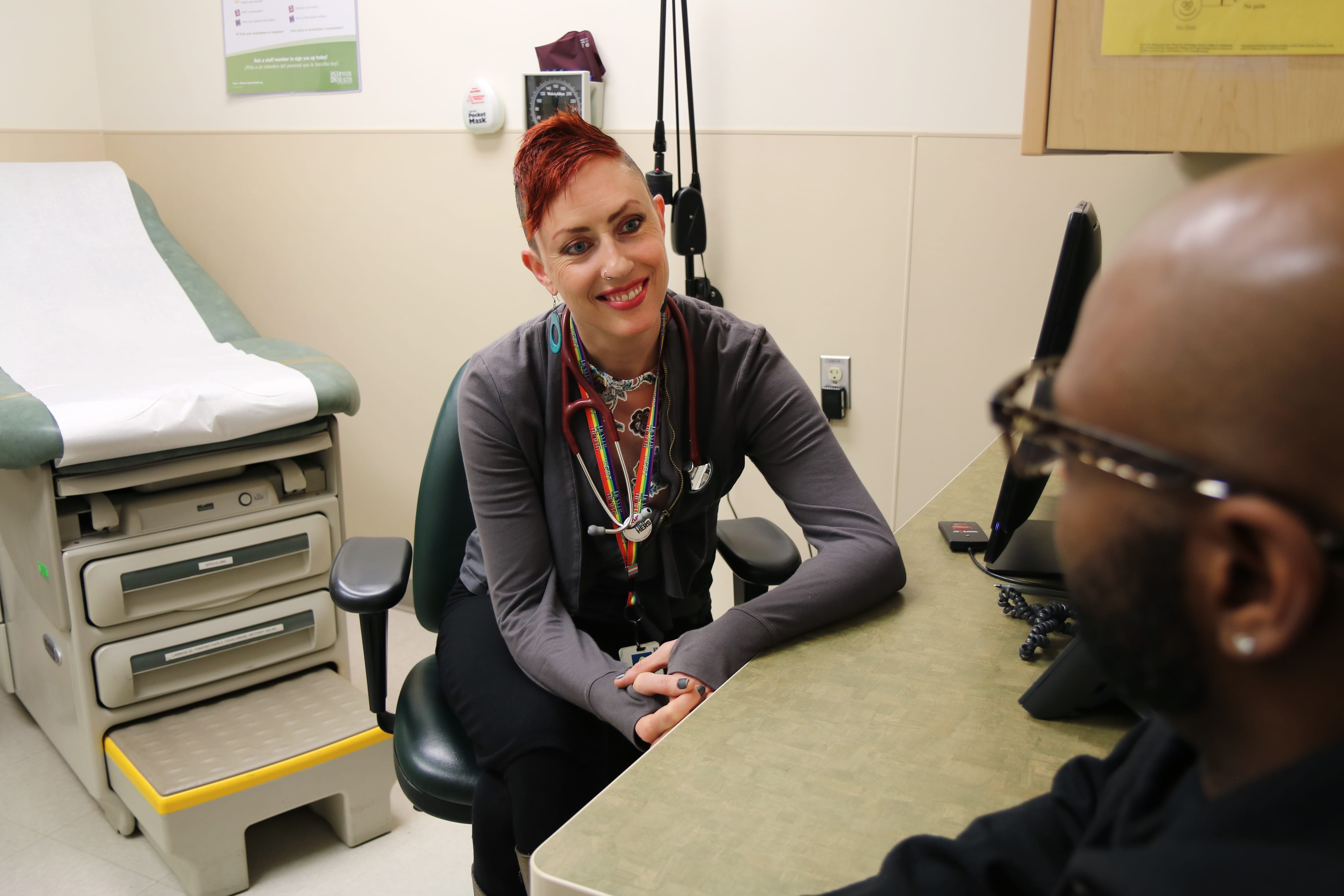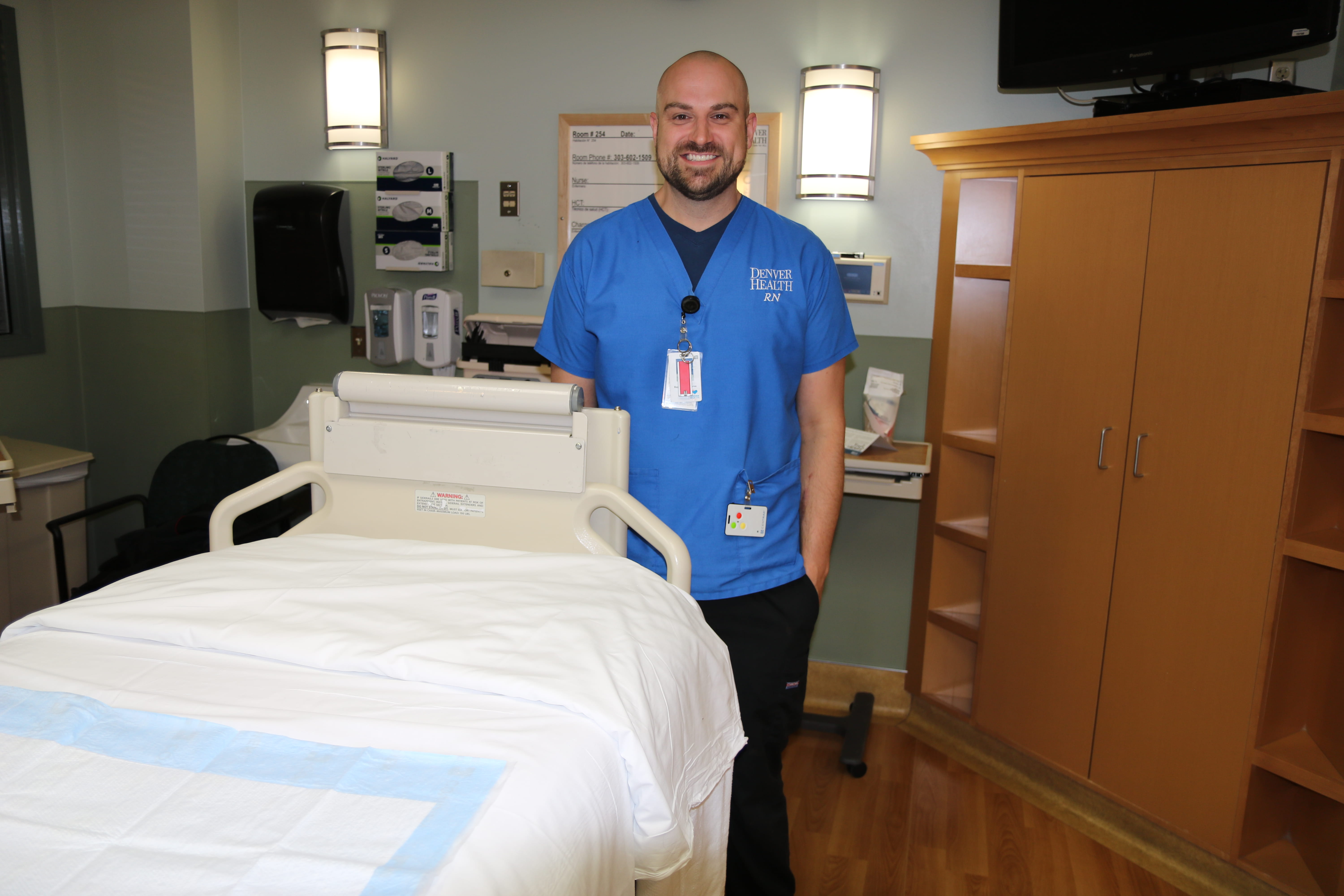Nurses Week 2018: The Nurses of Denver Health
At Denver Health, we love our nurses, who are focused on delivering the best treatment and care available to you every day. As we celebrated Nurses Week 2018, several nurses discussed what makes Denver Health one of the best hospitals for patients in Denver. The Nurses Week theme this year is “Nurses: Inspire, Innovate, Influence.” Here are the stories of five Denver Health nurses who are adhering to these themes – inspire, immeasurable, intuitive, influential and integrity.INSPIRE:
Tim Black
RN Charge Nurse
How long have you been at Denver Health?
“I’ve been at Denver Health for almost eight years.”
What brought you to Denver Health?
“Ever since I moved to the city, I’ve always heard Denver Health has given back to the community forever. I wanted to be part of an organization that focused more on giving back to its community than focused on money, and everything other than taking care of the people in its community. So that’s what drew me to Denver Health originally – the mission of taking care of all of its patients no matter what, and I think we still live up to that mission now.”
Your word is “inspire.” How does your job as a nurse at Denver Health inspire you?
“I think starting off as a tech, I’ve been inspired to be a leader on the floor and in the hospital. I genuinely care about the hospital, about the community and about growing our staff and growing our awareness in the community. I also feel like the nurses who come here are amazing nurses; the CNAs (certified nursing assistants) who come here are amazing. Our patients who come here, they need somebody who wants to care for them because they don’t have a lot of support. We give them support and resources that they probably wouldn’t get anywhere else in the city.”
What would you say gives you the most inspiration here at Denver Health?
“Knowing that I’m here to educate, to be a resource, to help with the growth of other new nurses, I think that for me was the biggest thing. Watch nurses that start out brand new, turn into charge nurses or they leave and go travel somewhere, you know, kind of watching that next generation of nurses, even though I’m still a new nurse, you know, watching the professional grow as a whole.”
IMMEASURABLE:
Mary Frances Bard
RN, Correctional Care at Denver County Jails
What do you do here at the Denver County Jail (downtown location)?
“There are literally five floors that are here in the [Denver Sheriff’s] Department, so we can be on any one of the floors at any one given time. I happen to like intake, some people don’t like it as much there, but it’s just one of those places that, I really like meeting and greeting people. I like to introduce myself. I think inmates get so shell shocked because they’re just here and they don’t know what’s going on and I think I can be that calming voice that will talk them through the process and just answer any of their medical concerns or medical needs. So when they first come in, if there are any medical concerns that they have, we are going to try to address those and try to verify any of their medications, so that’s a big part of what we do at intake. On the upper floors, it’s more about meeting their daily needs, whether it’s medication, dressing changes, procedures, whatever their health needs are while they’re here. We have two county jails we rotate through. There’s a lot of variety in what we do here – you get to move through different floors and move through different locations and work with a bunch of different people, nurses and deputies and the people coming in here – it’s always different.”
I’m sure you’ve seen a lot of interesting things during your time here?
“Yes, people just joke with me, the things that you hear, and they keep telling me I need to write a book because it’s just, it can be funny, it can be endearing, it can be heart wrenching. And you try to meet them wherever you are and try to, again, I always look at myself as more of, like, the calming presence – I’m trying to decrease their anxiety about being here, not to increase it.”
So much of Denver Health’s mission is about care for all; everybody deserves to be taken care of. What does that mean to you?
“Not to be corny, but I actually prayed a lot about it and I asked ‘God, where do you think I should be, what do you think I should be doing?’, because if somebody had asked me, like, correctional nursing was that in my future, many moons ago when I graduated nursing school, I would not have said, ‘Oh yeah, I want to go work in a correctional facility’ But once I was here, I think God just meant for me to be here and so I feel like I’m on a mission now to take care of the people who are here. And not only take care of the inmates, but take care of my fellow co-workers, as well, so I felt this is where I should be.”
It’s great to find work that’s rewarding, how does that relate to your word, “immeasurable”?
“Oh my gosh, yes, just this place can be so overwhelming and it can be crushing to that individual spirit. And when you see people and you let them know that this is just temporary, talking about the word immeasurable, I started to think about that and my idea of success out of the day is if I have one person say ‘Thank you’ to me, and so I go home and I say, ‘That was a successful day for me, because one person said thank you.’ I think a lot of it is the energy you put out there, you get that back, sometimes I get a half-dozen ‘thank yous’ and ‘pleases’ and the inmates acknowledge that yes, I am really here to help you. I’m not here to mess your life up any more or try to create any more anxiety for you, and I know people would think, ‘Wow that’s just such a small thing,’ but it’s the thing that I go home with and I can go home every day and say today was a good day, because somebody said thank you.”
INTUITIVE:
Marie Richardson
RN, NurseLine
How long have you been at Denver Health?
“I’ve been with Denver Health since 2015 and actually the NurseLine is totally outside of my normal element, I did ICU (Intensive Care Unit) home health with pediatrics before.”
How is working for NurseLine different from traditional nursing?
“We get a variety of calls from all types of patients, also information calls, we get to help them in a different way. We’re not hands on, but we’re still helping them, we’re triaging symptoms for them. We have access for some of our (phone) lines with our wonderful doctors that work with us in the afternoons and we can also help them information-wise with resources as well.”
You really have to be ready for anything and we’re guessing you’ve heard just about everything?
“I have. You never know what’s on the other end of that line when you answer the phone.”
How do you prepare for any type of call?
“It can be anything from ‘I need to know what my insurance is’ or ‘I’m having chest pains and I’m hardly breathing.’ So it could be from one simple information thing to ‘Hang up the phone now and please call 9-1-1.’ ”
So you have to be really good at researching things and recognizing trouble quickly?
“Here on the NurseLine, because we only talk to our patients [and can’t see them], we have to have the mindset and a sixth sense of what is going on with the patient by their tone of voice, you have to really be able to pull information out. We do have patients that are calling in and we’re telling them, ‘Call 9-1-1 or you’re going to the ED now,’ and they say, ‘but I don’t understand why,’ and I say, ‘please, please, you’re having a hard time talking. I can tell you’re in pain, I want you to hang up and call 9-1-1.’”
We are using the word “intuitive” for the NurseLine. Talk about what that word means to you?
“You have to be able to think outside the box. Every patient is different. What the patients are describing to you could be anything from mild to major. So I could have you calling me, asking me questions, but sometimes you just have that feeling that you need to ask other questions that have nothing to do [with the original issue], say about abdominal pain. If you’re saying your level of pain is a little bit higher [than normal], in the back of my mind, that doesn’t seem to match up with why you actually called. Sometimes we have patients that call with physical symptoms, but it’s an anxiety issue or they’re suicidal and we have to really up our game and think outside the box and also know when we have to ask for help and that’s one nice thing about the NurseLine is I can quickly message someone and say ‘Hey, I need someone to help me, to listen,’ especially if I’m looking for expert care or for outside care, like I need someone to call 9-1-1 or to call dispatch.”
You have all these resources at your fingertips, but what it comes down to at the end of the day is kind of a “gut” feeling?
“It is, it’s always a gut feeling, we have these wonderful guidelines we run through, but there’s times when our patients don’t fit into those guidelines, and so we have to definitely think back as to all of our traditional nursing skills, as a nurse, you think outside the box, you go by your gut feeling, your intuition tells you, ‘This is really not what I want to do.’ We can come to where our guidelines say, ‘This person doesn’t need to be seen for a week or three days,’ but then we can think ‘No, I really need to upgrade this and send them in to be seen now or in four hours.’”
INFLUENTIAL:
Kim Powell
NP, HIV Primary Care/Early Intervention Services
How long have you been at Denver Health?
“I’ve been at Denver health for seven years – started out in inpatient on the 9th floor and moved to the progressive care unit in critical care and then I came over to HIV Primary Care, known as Early Intervention Services (EIS) about five years ago and went to FNP school at the same time, and now I’ve been an FNP with HIV Primary Care/EIS for the last 4 years.”
What was it that brought you to Denver Health?
“I’ve always wanted to work for Denver Health. Prior to this, I worked at a hospital with a religious affiliation, and it was a great hospital. It was fine, but having a connection to the LGBT community and wanting to work for an organization that cares for people who are in need of health equity and being able to provide that to underserved communities was really important, so I think Denver Health is a good place for me.”
What does the word “influential” mean to you in your work at Denver Health?
“I think nurses just by default have to possess many different qualities. Sometimes it’s education, sometimes it’s advocacy and all of that points toward striving to be influential to our patients, our communities and our fellow team members. So I guess, helping to build a better world around us and to provide more empathy for others.”
Do you feel like you have an influence over your patients and staff?
“The biggest influence I can think of is seeing people as they are and as they see themselves. So my transgender patients for example, may have not been seen as themselves in their gender identify until they came into the clinic to meet me and maybe they’ve had a bad experience with medicine before or, with, you know, different encounters in the health care system so I think being able to see them as they are is a big deal for people. And I don’t see that probably as much as other people might see it but then when they refer their friends to me and they tell other people to come see me, then I feel that maybe I have had an influence and I’m helping them see themselves for who they are.”
Who influences you?
“I have so many people that influence me – my family, my friends, my patients really influence me, the staff I work with, my boss, Joshua Blum, has been great, he’s a great mentor to me. I’m influenced by literally every single person I come in contact with, and most of the time, that’s good. My partner keeps me grounded. I’m really lucky that I have a lot of people around me providing good influence.”
INTEGRITY:
Ben Razes
RN Charge Nurse, Medical Intensive Care Unit
How long have you been at Denver Health?
“I’ve been at Denver Health for a little over five years now. I recently accepted a position as the charge nurse on the medical intensive care unit (MICU). Before that I was in the float pool and acute care and before that I was in the Correctional Care Medical Facility at Denver Health.”
What would be the most challenging part of your job?
“The most challenging part of the job is working in a critical situation, where a patient is critically ill and you’re pulling all of your resources, to help have a positive outcome for that situation, and that’s the most stressful, because you’re worried about the patient’s health.”
Your word is “integrity.” How does integrity come into your daily work here?
“Integrity is having moral principles or a moral compass that guides you through your practice. The important thing about integrity in nursing is having it across the board in all situations, whether it’s with patients or families. It’s being honest and consistent – if you don’t know something, just saying you don’t know. It’s also just offering the same level of care to somebody who might have a lot of legal charges as well as somebody who may have just been in the neighborhood and ended up here [at Denver Health] as well.”
Is integrity is a huge part of working in an ICU, where seconds count and everything is at a heightened level?
“Absolutely. It’s a very strong team. I think that integrity is a huge part of what I like about the team that I work with. When you have people who work with integrity alongside you, you’re not worried about having to follow behind somebody or to second guess others because you have seen the integrity of other people being practiced so many times that you are able to trust the team.”
What do you like most about working at Denver Health?
“Working with patients and their families; we see people who are here regularly for chronic issues, such as decay, that is very manageable, but still requires a critical level of nursing; all the way down to cardiac arrest or other life-threatening or terminal illnesses; that span of experiences – working directly with people and their families.”
What brought you to Denver Health?
“I came to Denver Health as a student, in nursing school. I like the mission of the hospital. It seemed like there wasn’t a hospital you could compare it to, a hospital that cares for all patients the way we do. When I worked here as a student, it was the integrity of the nurses that triggered me to continue to ask for student assignments here and to pursue a career here. I saw the nurses with integrity who were in [difficult] situations and I thought that the way that they navigated those situations was incredible and I wanted to work with people like that.”
It sounds like integrity has been a theme for you here on your journey at Denver Health?
“It has, it really has.”


